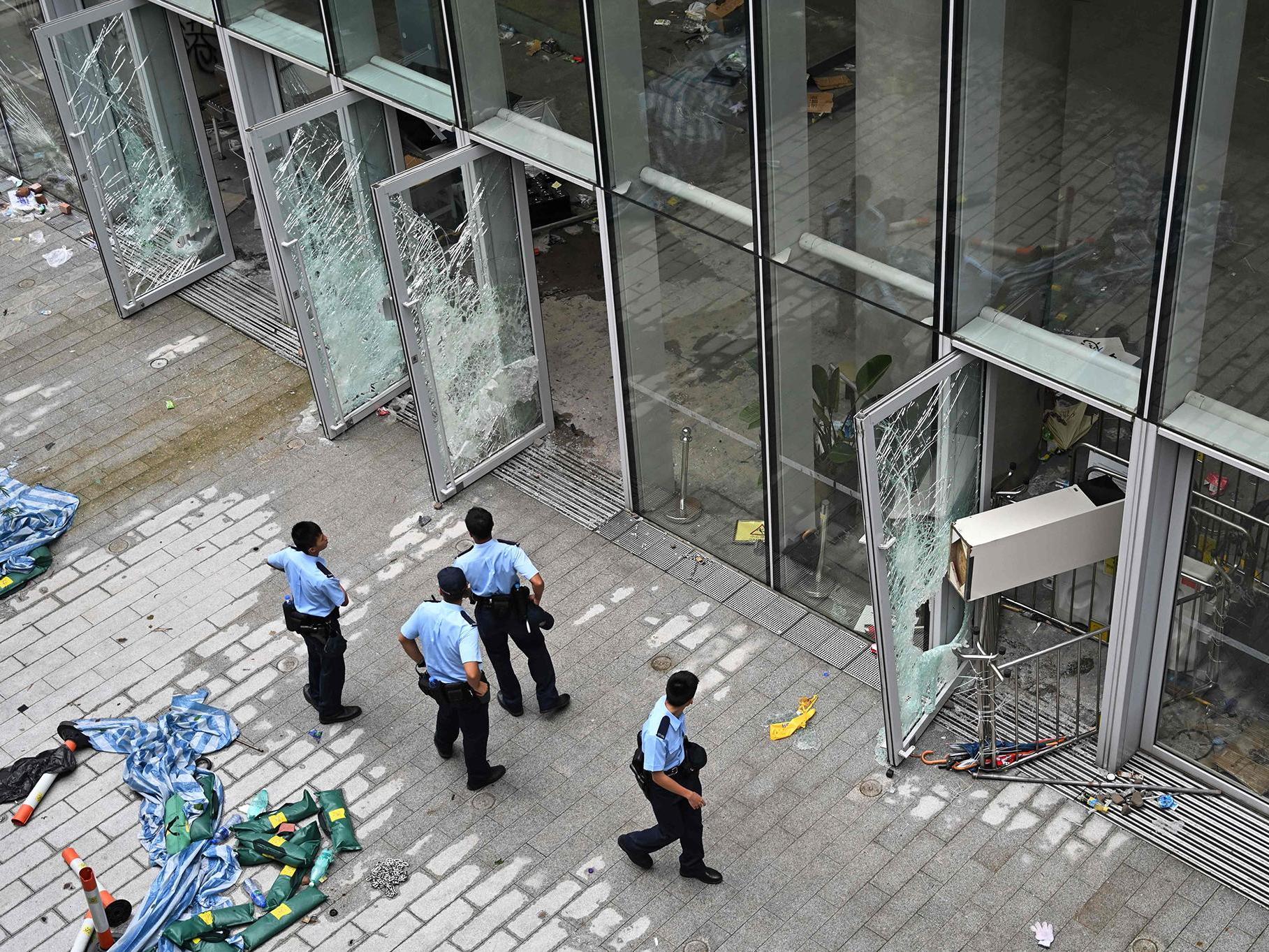Now the dust has settled in Hong Kong, it’s time for both sides to reflect on what is at stake
Hongkongers, like the British before them, need to acknowledge that their ‘neighbour’ is enormously powerful and often very ruthless

The millions of Hong Kong citizens who have been marching and protesting over recent weeks have been mostly characterised by a sort of noisy dignity. They wanted to make sure that the authorities in Beijing and their woman in Hong Kong, Carrie Lam, were under no illusion about their creeping attempts to erode Hong Kong’s freedoms. In particular they wanted Ms Lam to withdraw a proposal that might have meant Hongkongers being extradited to mainland China to face trial in rigged courts.
It worked. The notion was shelved, but that was not enough for some of these passionate refuseniks. They wanted the proposal killed off, and permanently withdrawn.
And so the protest continued, and a minority broke into the building that houses the legislative council, a weak form of parliament, to trash the place.
Although their anger was real, and the emotions raw and understandable, this was probably a tactical mistake. For whatever Beijing’s intentions might have been before – probably to quietly let their extradition law expire out of neglect – it is difficult for it now to back down, for fear of seeming to give in to violent pressure. Losing face is not something the government of President Xi is known for.
Moreover, inevitable and spontaneous as the invasion was, it has allowed Ms Lam to gain something of the moral high ground. It is now too easy for her to praise the peaceful protest that preceded the takeover of the council chamber, and to contrast that with the “extreme use of violence”. With no trace of irony, Ms Lam condemns the protesters of “trampling the rule of law”, even though that is in fact what they want to defend in Hong Kong. Given the Chinese leadership’s usually militant response to attacks, it is surprising that the police didn’t use more force to resist and evict the protesters. It was fortunate that they did not, and risk things escalating even further. There would have been no winners in that case.
The leadership of the Chinese Communist Party will be most disturbed about the appearance of colonial-era flags and emblems, and slogans such as “Hong Kong is Not China” and references to the “sunflower” movement for permanent separate statehood in Taiwan. To China’s ruling gerontocracy these are alarming and offensive developments.
For there is nothing these heirs of Mao Zedong fear more than a fracturing of their now mostly unitary state, and any further encouragement to dissent for separatist movements in Taiwan, Tibet, Macau and Xinjiang province, where the mostly Muslim Uighur people are being oppressed on an industrial scale.
Of course the protesters do not, in reality, want to return to British imperial rule (even if that were a realistic prospect), and they must obviously accept the simple truth that Hong Kong is a part of China, albeit under the “one nation, two systems” arrangement agreed when Britain left in 1997. In other words, in their emotional, rebellious mood, they allowed their legitimate and unarguable case for the protection of human rights to morph into something that appeared to question the integrity of the People’s Republic.
Now that the rioting is over, and the collective clean-up has begun, there is ample opportunity for tempers to cool and for all sides to reflect. Although China itself, especially economically, has come a long distance since the 1990s, Hong Kong remains a precious jewel, retaining its prestige as a financial and commercial centre partly as a result of its spate traditions, legal system, currency and citizens’ rights.
Hongkongers, though, like the British before them, need to acknowledge that their “neighbour” is an enormously powerful and very often ruthless one (see Tiananmen Square in 1989), and that the remote UK, as part-guarantor of their rights and privileges under the Sino-British Joint Declaration, is in no position to offer much practical help.
Join our commenting forum
Join thought-provoking conversations, follow other Independent readers and see their replies
Comments
Bookmark popover
Removed from bookmarks